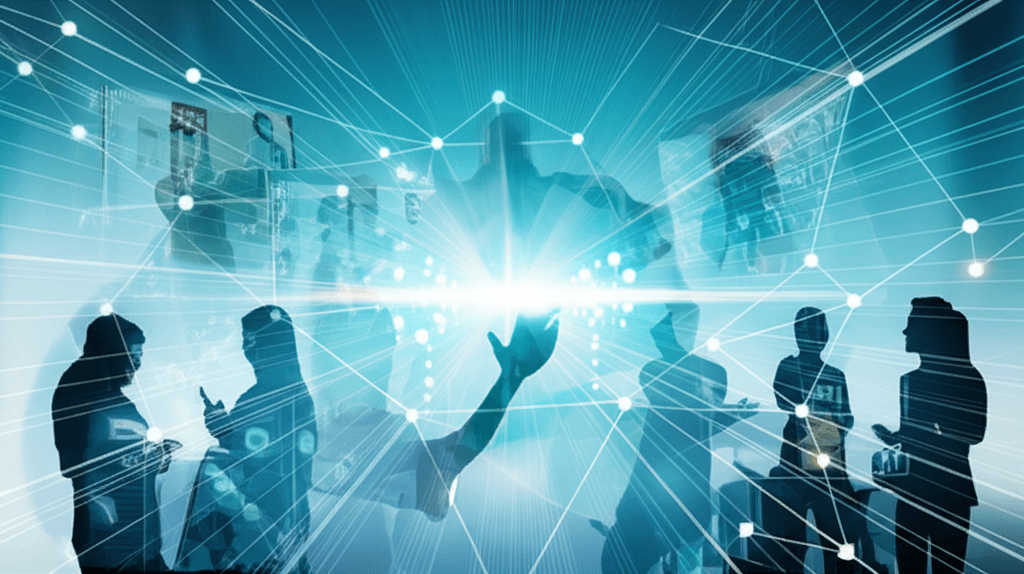Artificial Intelligence Becomes Invisible Partner, Reshaping Every Aspect of Daily Life.
Explore how artificial intelligence now powers our daily routines, revolutionizing homes, health, and the future of work.
June 30, 2025

Artificial intelligence has moved from the realm of science fiction into the fabric of daily existence, subtly yet profoundly reshaping how people live, work, and interact.[1][2] Once a futuristic concept, AI is now an integral, often invisible, partner that enhances efficiency and convenience from the moment a person wakes up.[1][2] Its influence is woven into smartphones, homes, and workplaces, powering everything from facial recognition to unlock a device to the complex algorithms that filter email and recommend news.[3][4] This technological integration streamlines mundane tasks, personalizes experiences, and drives significant transformations across major industries.[5][6] The world is more efficient thanks to AI, with its impact on society continuing to grow and improve the way people go about their daily lives.
At home, AI has become a central component of modern convenience, most notably through smart personal assistants and automated devices.[2] Voice-activated assistants like Amazon's Alexa and Google Assistant have become common, allowing users to manage schedules, control smart home devices such as lights and thermostats, and access information with simple voice commands.[7][8][9] These systems leverage natural language processing and machine learning to understand user preferences and adapt to individual needs, creating a more personalized and responsive home environment.[5][10] Beyond personal assistants, AI algorithms power the recommendation engines on entertainment platforms like Netflix and Spotify, curating content based on viewing and listening habits.[1] In fact, a significant portion of viewer activity on platforms like Netflix is driven by these AI-powered suggestions.[11] This level of personalization extends to online shopping, where AI optimizes product recommendations and pricing based on user behavior.[12]
The impact of artificial intelligence extends beyond the home, revolutionizing critical sectors like healthcare and transportation. In healthcare, AI is being deployed to analyze vast datasets, leading to earlier and more accurate disease diagnoses.[13][14] AI algorithms can analyze medical images like X-rays and MRIs with a high degree of accuracy, sometimes surpassing human capabilities in detecting conditions such as cancer.[15][13] Predictive analytics can identify patients at risk for certain diseases, enabling proactive and preventative care.[15] Furthermore, AI is streamlining administrative tasks, reducing the burden on medical professionals and allowing them to focus more on patient care.[14][15] In transportation, AI is making commutes safer and more efficient.[16][17] Navigation apps like Google Maps and Waze use AI to analyze real-time traffic data to suggest the fastest routes, while intelligent traffic management systems in some cities can adjust traffic signals to reduce congestion.[12][18][17] The development of autonomous vehicles represents a significant leap forward, with the potential to reduce accidents caused by human error.[16][19][20]
In the professional world, AI is reshaping the nature of work and productivity. By automating repetitive and routine tasks, AI frees up human workers to concentrate on more complex, creative, and strategic responsibilities.[21][22] This has led to increased efficiency in various industries.[23] According to one projection, AI could boost business productivity by up to 40% by 2030.[24] The integration of AI has spurred debate about job displacement, with some reports suggesting that millions of jobs could be automated.[24][25] However, many experts believe that while AI will displace certain roles, it will also create new ones, particularly in fields like data science, AI development, and cybersecurity.[24][26] The World Economic Forum, for instance, has projected that while AI might displace 85 million jobs, it could create 97 million new ones.[24] This transition necessitates a focus on reskilling and upskilling the workforce to adapt to a future where human-machine collaboration is the norm.[27]
In conclusion, artificial intelligence has become a pervasive and transformative force in modern society, fundamentally altering daily routines, personal interactions, and professional landscapes. Its integration into homes has introduced a new level of convenience and personalization, while its application in healthcare and transportation is yielding significant improvements in safety and efficiency.[8][16][13] In the workplace, AI is driving a shift towards greater productivity and creating new opportunities, though it also presents challenges related to workforce adaptation.[24][27] As AI technology continues to evolve, its influence is expected to deepen, further embedding itself into the core functions of everyday life and solidifying its role as a defining technology of the 21st century.[28][16]
Sources
[1]
[3]
[5]
[6]
[7]
[9]
[11]
[12]
[13]
[14]
[15]
[16]
[17]
[18]
[19]
[20]
[21]
[22]
[23]
[24]
[25]
[27]
[28]